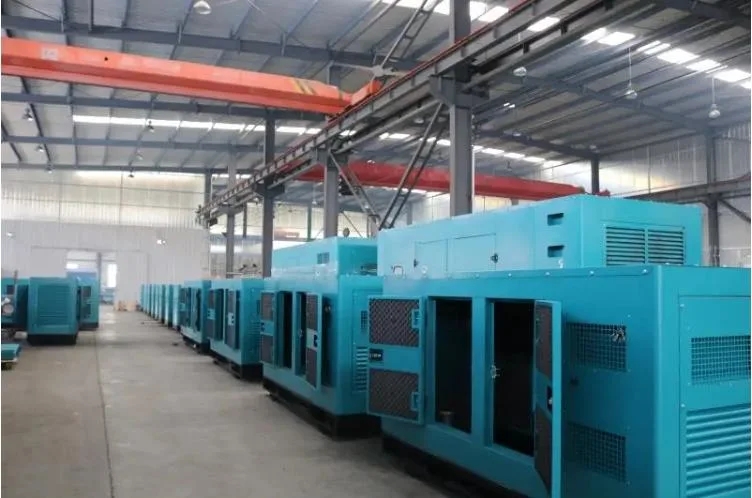Introduction:
Recreational vehicles (RVs) have been a popular choice for adventure seekers and avid travelers for decades. These versatile vehicles allow individuals and families to explore the great outdoors while enjoying the comforts of home. However, one of the challenges faced by RV owners is the need for a reliable and efficient power source while on the road. This is where diesel generators come into play. In this article, we will explore the benefits and features of diesel generators for recreational vehicles, highlighting why they are an essential addition for any RV enthusiast.
Section 1: Understanding Diesel Generators
1.1 What is a Diesel Generator?
A diesel generator is a device that converts the chemical energy stored in diesel fuel into electrical energy, providing power to various appliances and systems in an RV. It consists of an engine, an alternator, a fuel system, and a control panel.
1.2 How do Diesel Generators Work?
The engine in a diesel generator runs on diesel fuel, which is ignited by compression rather than a spark, making it more efficient and durable than gasoline engines. The engine drives the alternator, which produces electricity through electromagnetic induction. The generated electricity is then distributed to power the RV's lights, appliances, air conditioning, and other electrical systems.
Section 2: Advantages of Diesel Generators for RVs
2.1 Fuel Efficiency
Diesel generators are renowned for their exceptional fuel efficiency. Compared to gasoline generators, diesel generators consume less fuel for the same power output due to the higher energy density of diesel fuel. This efficiency allows RV owners to extend their trips without worrying about frequent refueling.
2.2 Durability and Longevity
Diesel engines are designed to withstand heavy-duty applications, making them ideal for the demanding conditions encountered while traveling on the road. Diesel generators have a longer lifespan and require less maintenance compared to gasoline generators, providing peace of mind to RV owners.
2.3 Power Output
Diesel generators are known for their high power output. They can handle heavy loads, making them suitable for powering all the electrical systems and appliances in an RV, including air conditioning units, refrigerators, microwaves, televisions, and more. With a diesel generator, RV owners can enjoy all the comforts of home while on the road.
2.4 Safety
Safety is a crucial consideration when choosing a power source for an RV. Diesel fuel is less volatile than gasoline, reducing the risk of explosions or fires. Additionally, diesel generators have built-in safety features, such as automatic shut-off systems and low oil pressure sensors, ensuring the well-being of both the RV and its occupants.
Section 3: Features and Considerations for Diesel Generators in RVs
3.1 Size and Portability
RVs come in various sizes, from compact campervans to large motorhomes. When selecting a diesel generator for an RV, it is essential to consider the size and portability of the unit. Compact and lightweight generators are more suitable for smaller RVs, while larger units with wheels or handles provide ease of transportation for larger vehicles.
3.2 Noise Levels
Noise can be a significant concern for RV owners, especially when camping in serene and peaceful locations. Diesel generators are generally quieter than gasoline generators, thanks to their slower engine speed and better insulation. It is important to choose a diesel generator with low noise levels to avoid disturbing both the RV occupants and fellow campers.
3.3 Fuel Tank Capacity and Run Time

The fuel tank capacity of a diesel generator determines its run time before requiring refueling. A larger fuel tank allows for longer periods of operation without interruptions. RV owners should consider the average power consumption of their electrical systems and appliances to ensure the generator's fuel tank capacity meets their needs.
3.4 Automatic Start and Stop Features
Modern diesel generators often come equipped with automatic start and stop features. These features allow the generator to start automatically when the RV's battery charge drops below a certain level and stop when the battery is sufficiently recharged. This automation ensures a continuous power supply without requiring constant monitoring.
Section 4: Installation and Maintenance of Diesel Generators
4.1 Installation Considerations
Proper installation of a diesel generator is crucial for optimal performance and safety. It is recommended to consult with a professional electrician or RV service technician to ensure correct wiring, ventilation, and exhaust system installation. Adequate ventilation is necessary to prevent the buildup of exhaust gases and maintain a conducive operating environment.
4.2 Maintenance Requirements
Regular maintenance is essential for the longevity and reliable operation of a diesel generator. 200kw diesel generator for remote locations may include oil and filter changes, fuel filter replacements, checking and tightening electrical connections, and inspecting the cooling and exhaust systems. Following the manufacturer's recommended maintenance schedule will help prevent breakdowns and ensure the generator operates at peak efficiency.
Section 5: Conclusion
In conclusion, diesel generators are an indispensable power source for recreational vehicles, providing reliability, efficiency, and power on the road. Their fuel efficiency, durability, high power output, and safety features make them an excellent choice for RV owners. By considering factors such as size, noise levels, fuel tank capacity, and automatic start features, RV enthusiasts can select the ideal diesel generator to meet their specific needs. Proper installation and regular maintenance are crucial to ensure optimal performance and longevity. With a diesel generator at their disposal, RV owners can embark on their adventures with confidence, knowing that they have a reliable and efficient power source to support their journey.
